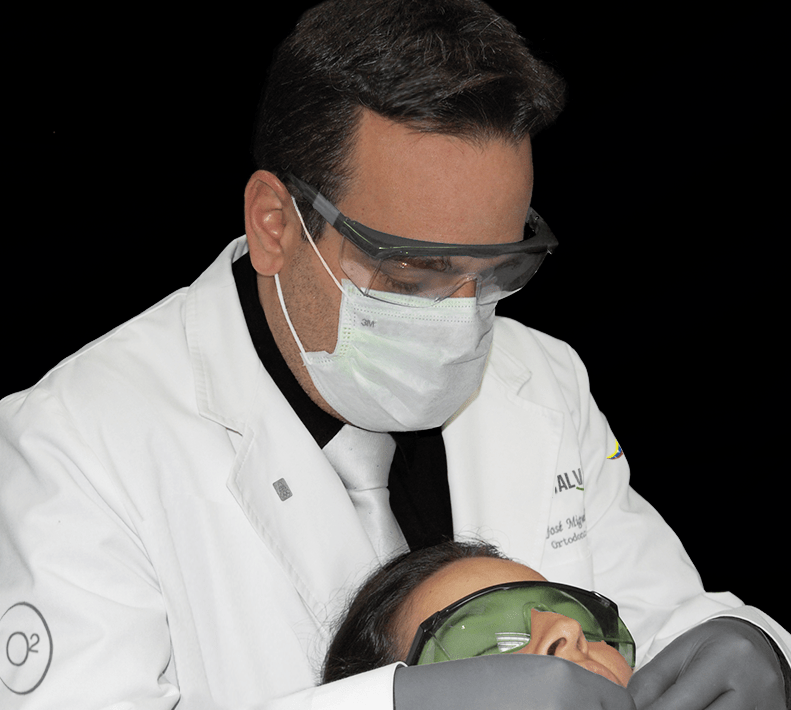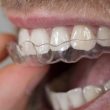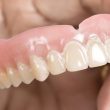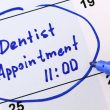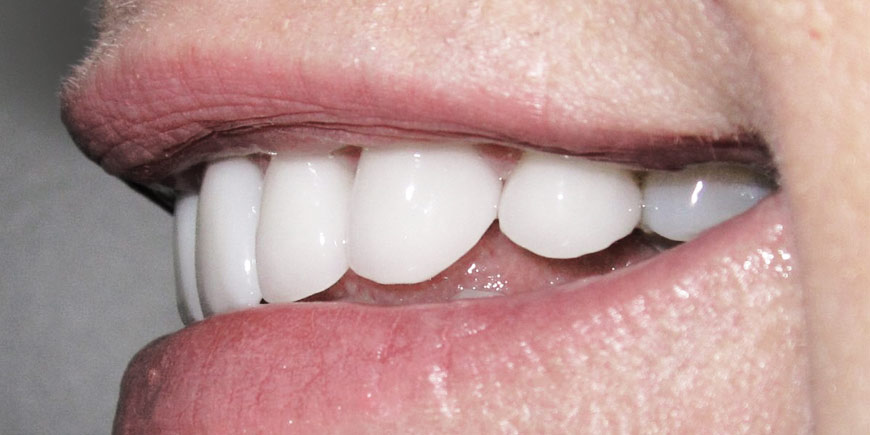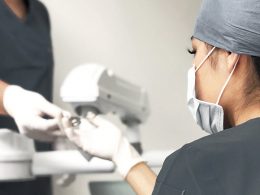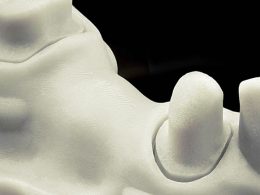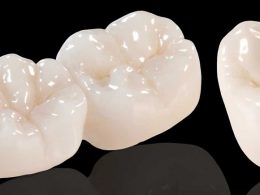Table of Contents
Full mouth reconstruction or rehabilitation (FMR) is one of the most extensive and complex procedures in Dentistry, and the most logical thing is that you wonder what exactly it consists of, what grouped treatments and how long does it take to complete it. That is why we created this quick guide, condensing in it everything you need to know about complete oral reconstruction.
Full mouth reconstruction is a procedure, or better, a series of procedures that restores the health, function, and aesthetics of a person’s oral cavity and teeth. If teeth are missing, the gums are diseased or the patient has problems chewing properly; complete oral rehabilitation is usually the most indicated comprehensive treatment.
It is important to note that FMR is not a purely cosmetic treatment, and it is primarily intended for people with functional problems that affect their masticatory system. However, cosmetic solutions, such as teeth whitening for example; can be part of the overall treatment plan.
Why Might a Full Mouth Reconstruction Be Indicated?
There are a wide range of factors that could make you an ideal candidate for full mouth reconstruction:
- Extensive or Generalized Dental Pathology If you have periodontitis or periodontal disease, with large gum infections and many dental cavities of great extension; you could benefit from the FMR.
- Accidents and Trauma If you have had an accident that has caused damage to your mouth and/or loss of teeth, you could benefit from the FMR.
- Erosion and Dental Wear If your teeth have become excessively worn due to occlusion, stress or bruxism problems; you could benefit from the FMR.
- Joint Problems If you experience jaw pain or headaches as a result of a bad bite (functional malocclusion), you could benefit from FMR.
How Long Does a Procedure of This Type Take?
It is a difficult question to answer. It all depends on the number of treatments required. The greater the extent of the damage, the greater number of Specialties must intervene, which will imply a longer attention span.
Some of these treatments take longer than others. For example, a dental implant is usually placed in two stages, which can mean a wait of up to 5 months between insertion and fitting of the restoration. The time frames for your treatment will be discussed only after a thorough diagnosis and treatment plan has been made.
What Treatments Are Usually Necessary?
In reality, any known Specialty, treatment or clinical procedure in Dentistry may be necessary within a case of full mouth reconstruction. However, the most frequent are:
- Teeth and Broken Roots Extraction There are a few reasons why tooth extraction may be indicated, such as trauma fractured teeth, with large infections, or problematic wisdom teeth. But the most common reasons are due to periodontal disease and advanced cavities.
- Dental Implants In order to replace missing or non-restorable teeth with titanium cylinders that act as artificial substitutes for dental roots.
- Fixed Prosthodontics It involves the design of crowns and fixed bridges to restore or replace diseased or missing teeth. Dental crowns are types of covers that Dentists usually place on a badly destroyed tooth or on a dental implant. Fixed bridges are ceramic block artificial teeth that can replace missing teeth, by fixing on neighboring teeth.
- Bone and Soft Tissue Surgery To remove and heal infected or degenerated gums and bones.
- Removable Dentures Generally as provisional or transitional prostheses, while treatment is advanced and completed.
- Bone and Gum Grafts To replace tissues lost to trauma or periodontal disease and prepare the mouth to receive implants and fixed restorations.
- Ceramic Veneers and Onlays To rebuild anterior teeth, posterior teeth that still retain much of their structure, or to improve the overall appearance of the smile.
- Orthodontics Sometimes necessary to redistribute and consolidate the spaces, align the teeth and favor the aesthetic results of the treatment.
What Are the Objectives of the FMR?
Some of the potential procedures involved in complete oral rehabilitation have already been described, we now present their main therapeutic objectives:
- Replace multiple dental losses.
- Repair and restore diseased, worn or destroyed teeth.
- Treat and control periodontal disease.
- Eliminate disturbances, pains and functional limitations.
- Stop the cycle of pathological oral degeneration.
- Restore the aesthetic appearance of the smile.
- Eliminate halitosis or bad breath.
How Is a Full Mouth Reconstruction Done?
First, the diagnosis and planning phase of the case is exhausted. “If you do not know where you are going, it does not matter which way you take”, is a proverb that applies well to this type of procedure. In order to determine which treatments and which Specialties should participate in each case, we must evaluate with time and great care all the patient’s diagnostic records: photographs, X-rays, study models and tomographies; and then contrast and complement them with a thorough intraoral clinical examination.
Next, the sanitation and preprosthetic oral preparation phase begins. In it, cleanings, scaling and periodontal curettage are done; cavities present are removed and filled, teeth with poor or reserved prognosis are extracted, root canals, posts and artificial cores are performed as necessary; bone and gingiva are grafted into important tissue and anatomical defects, dental implants are placed, the occlusion or bite is stabilized with provisional restorations or prostheses; and in some cases, brackets are placed to correct the position of the teeth within the dental arch.
4 or 5 months later, once the osseointegration process of dental implants has concluded (if this is the case of course), a digital smile design is usually made to determine the shape and size of the new teeth. Next, the ceramic crowns and bridges are made, fully respecting the indications and contraindications of their variants, mainly those related to the composition of their structure, which according to local requirements may be made of all-ceramic or porcelain fused to metal.
To conclude, a night splint that protects all rehabilitation during sleep; mainly from teeth clenching and grinding is designed, manufactured and installed.
What Additional Benefits Can Treatment Provide?
There is a wide variety of systemic pathologies that produce manifestations or lesions in the mouth and that can seriously affect the integrity of the teeth and dental arches. In these cases, FMR can be a true lifesaver for the patient:
- Ectodermal Dysplasia It involves the abnormal development of skin, hair, and teeth. Some patients with ectodermal dysplasia may have malformed teeth or teeth with defective tooth enamel. Complete oral reconstruction can help people address some of the symptoms of this disease.
- Imperfect Amelogenesis It is a rare inherited disorder that causes alterations in the formation of tooth enamel and cavities. Its main sign is teeth that are porous, permeable and highly susceptible to fracture. That is why patients with amelogenesis can often have cracked teeth, advanced tooth decay and gum diseases. Full mouth reconstruction is one of the best ways to address the complications associated with amelogenesis imperfecta.
- Imperfect Dentinogenesis It is a disorder that can cause teeth to appear discolored, often exhibiting a yellowish-brown or bluish-gray hue. Imperfect dentinogenesis can also make teeth appear translucent. The disorder can affect both baby teeth and permanent dentition. Complete mouth reconstruction can help address discoloration and, if necessary, replace teeth that have been split or extracted.
- Temporomandibular Joint (TMJ) Dysfunction Over time, the malocclusion or bad bite, it wears down the teeth, hypertrophies the masticatory muscles and destroys the temporomandibular joints; to the point that the person completely loses the ability to chew. Full mouth reconstruction is able to stop the degenerative progress of this dysfunction and restore the patient’s normal occlusion.
- Oral Cancer Although oral cancer must be treated by an Oncologist, once it has been removed and controlled, complete rehabilitation of the mouth can help restore health, chewing function, and quality of life. Sometimes, the size and extension of the tumors deserve the removal of teeth and portions of the jaw, which then must be replaced with grafts, dental implants and dentogingival or maxillofacial prostheses.
“The Term Oral Rehabilitation Is Very Broad, and Can Cover All Specialties of Dentistry”.
DENTAL TIP
Why at DENTAL VIP We Excel in These Procedures?
Our dental practice in Venezuela is at the intersection of cutting-edge medical technology and cosmetic excellence. At DENTAL VIP we have more than 20 years of experience in restorative Dentistry and we have built one of the most prestigious dental practices in Caracas. Our professionals are graduates of the best dental school in our country, the Faculty of Dentistry of the Universidad Central de Venezuela, and then completed Postgraduate studies and advanced training programs in recognized national and foreign universities.
Another thing that makes our practice unique, is our great obsession with dental aesthetics. Apart from Dentists, we are artists, and we always seek to personalize each of our restorations as much as possible. DENTAL VIP combines this emphasis on cosmetic beauty with many of today’s most advanced dental equipment and procedures. This combination provides DENTAL VIP with the ability to offer a first-rate full mouth reconstruction, where biological, functional and aesthetic factors are always of equal importance.
We Are Just One Step Away!
Globalization and dental tourism are two extraordinary tools for accessing world-class Dentistry. Currently millions of people travel to other countries in search of opportunities and prices that allow them to face their dental treatments and recover their smile.
Wherever you are, generally in just a few hours you will be able to get to Venezuela, move to a comfortable hotel and start your oral rehabilitation process with dental implants, porcelain veneers and 100% metal-free ceramic structures; at only a fraction of the cost you would have to pay in your home country.
Almost certainly traveling or not traveling will mean the difference between satisfaction and resignation, or at best; between just getting “something” or be able to reach “the best option”. At DENTAL VIP we are very good hosts and excellent professionals.
Contact us and ascertain how traveling to Venezuela can improve your self-esteem and quality of life!
